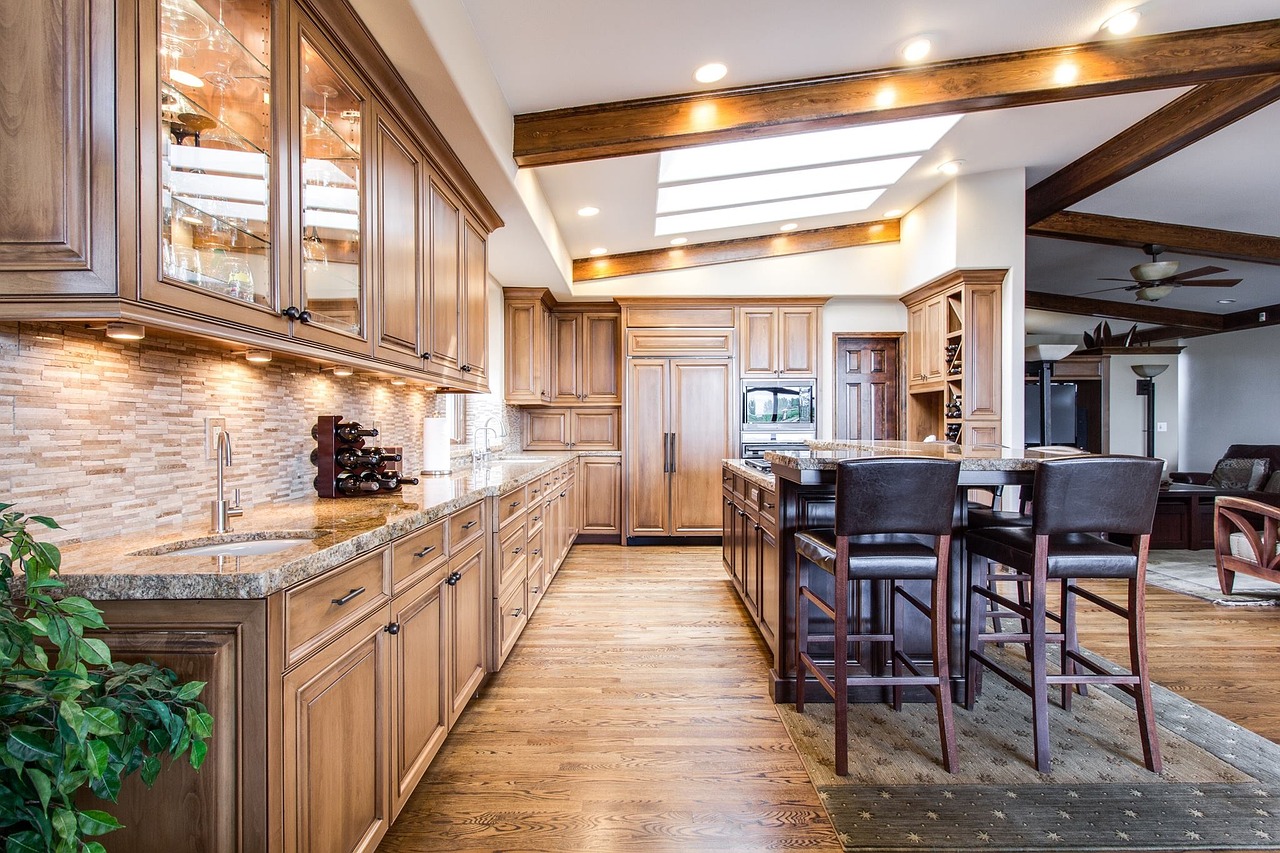Imagine living in a unique and versatile space that combines both a barn and a condominium, offering the best of both worlds. As intriguing as it may sound, this type of property, known as a barndominium, comes with its own set of taxation considerations. Understanding how barndominiums are taxed is crucial for anyone considering purchasing or building one of these hybrid structures. In this article, we will explore the various aspects of barndominium taxation, providing you with insights to help you navigate the tax implications of this fascinating property concept.
Understanding the Taxation of Barndominiums
Barndominiums have become an increasingly popular housing option, combining the functionality of a barn with the comforts of a modern home. If you own or are considering purchasing a barndominium, it's important to understand the various taxes associated with this unique property. In this comprehensive article, we will explore the definition and characteristics of barndominiums, the different types of taxes imposed on them, property taxes, assessment and valuation, sales taxes, income taxes, special tax considerations, tax credits and deductions, and the benefits of hiring tax professionals for barndominium tax matters.
1. Definition and Characteristics of Barndominiums
1.1 What is a Barndominium?
A barndominium is a type of structure that combines a barn or similar agricultural building with a residential living space. These structures are typically built with corrugated metal exteriors and feature a wide open floor plan. Barndominiums offer a unique and versatile living option that appeals to those looking for a blend of rustic charm and modern design.
1.2 Barndominiums as Residential and Agricultural Structures
One of the defining characteristics of a barndominium is its dual functionality. While the residential area serves as a comfortable living space, the remaining space can be used for various agricultural purposes, such as housing livestock, storing equipment, or even operating a small farm. This combination of residential and agricultural elements presents unique challenges and opportunities when it comes to taxation.
1.3 Unique Features and Benefits of Barndominium Living
Barndominium living offers several benefits that contribute to its increasing popularity. The open floor plan allows for flexible interior design options, while the durable construction materials make barndominiums relatively low maintenance. Additionally, the ability to have both living and agricultural spaces in one structure can provide a more efficient and cost-effective lifestyle for those interested in farming or rural living.

This image is property of pixabay.com.
2. Different Types of Taxes on Barndominiums
2.1 Overview of Various Taxes Imposed on Barndominiums
Like any other property, barndominiums are subject to different types of taxes at the federal, state, and local levels. Understanding these various taxes is crucial for barndominium owners to ensure compliance and avoid any potential tax liabilities.
2.2 Federal Taxes
Barndominium owners are required to report their income and potentially pay federal taxes on any rental income generated from renting out a portion of the property. Additionally, if a barndominium is sold, capital gains taxes may apply on the profit made from the sale.
2.3 State Taxes
State taxes on barndominiums can vary depending on the specific state regulations. In some states, sales taxes may apply to the purchase of barndominiums or the materials used for construction. State income taxes may also be applicable, depending on the rental income generated or the profits from selling a barndominium.
2.4 Local Taxes
Local property taxes are a significant consideration for barndominium owners. These taxes are typically based on the assessed value of the property and are used to fund local services, such as schools, libraries, and emergency services. It's important to understand how local tax rates are calculated and how they may impact your overall tax liability.
3. Property Taxes on Barndominiums
3.1 Understanding Property Taxes
Property taxes are a significant expense for barndominium owners. These taxes are assessed annually by the local government and are based on the value of the property. Property taxes play a vital role in funding local services and infrastructure, making it essential for barndominium owners to understand how they are calculated.
3.2 Calculation and Assessment of Property Taxes
The calculation of property taxes for barndominiums is typically based on the assessed value of the property, which is determined by local assessors. This value takes into account factors such as the size, condition, location, and overall market value of the property. Understanding the assessment process can help barndominium owners anticipate their tax liability and plan accordingly.
3.3 Factors Affecting Property Tax Rates for Barndominiums
Several factors can influence the property tax rates for barndominiums. These may include the specific location of the property, the local tax rate, any exemptions or deductions available, and changes in the overall property market value. By considering these factors, barndominium owners can better understand their property tax obligations.
3.4 Property Tax Exemptions and Deferrals for Barndominiums
Depending on the jurisdiction, there may be certain property tax exemptions or deferrals available for barndominium owners. These exemptions or deferrals may apply to primary residences, agricultural use, or other specific circumstances. Understanding these potential exemptions and deferrals can help barndominium owners reduce their property tax burden.

This image is property of pixabay.com.
4. Assessment and Valuation of Barndominiums
4.1 Property Assessment Process for Barndominiums
The property assessment process for barndominiums involves determining the value of the property for taxation purposes. Assessors take into account various factors, such as the size, construction quality, and condition, to determine the assessed value. Barndominium owners should be aware of the assessment process to ensure fair and accurate valuations.
4.2 Factors Considered in Valuing Barndominiums
When valuing barndominiums, assessors typically consider factors such as the square footage of the living area, the overall architectural design, the quality of construction materials, and any additional features or improvements that enhance the property's value. Understanding these valuation factors can help barndominium owners assess the fairness of their property tax assessments.
4.3 Appraisals and Assessors' Determination of Value
In some cases, barndominium owners may choose to obtain an independent appraisal to determine the market value of their property. This appraisal can provide valuable information when disputing property tax assessments or when selling a barndominium. However, it's important to also understand how assessors determine the value of a property for taxation purposes.
4.4 Appealing Property Assessments
If a barndominium owner believes their property tax assessment is inaccurate or unfair, they have the right to appeal the assessment. The appeals process typically involves providing evidence or documentation to support the claim of an incorrect valuation. Understanding the appeals process and the necessary steps can help barndominium owners navigate the system and potentially reduce their property tax liability.
5. Sales Taxes and Barndominiums
5.1 Sales Taxes on Barndominium Purchases
Depending on the jurisdiction, sales taxes may apply to the purchase of a barndominium. These taxes are typically calculated as a percentage of the purchase price and can significantly impact the overall cost of acquiring a barndominium. It's essential for buyers to understand the sales tax implications and factor them into their budget.
5.2 Taxability of Barndominium Construction Materials and Services
In addition to sales taxes on the purchase of a barndominium, taxes may also apply to the construction materials and services used in building the structure. These taxes can vary depending on the specific jurisdiction and may include sales tax, use tax, or contractor's tax. It's important for barndominium builders to be aware of these taxes and comply with the necessary regulations.
5.3 Exemptions and Exclusions for Barndominium Builders and Buyers
In some cases, certain exemptions or exclusions may be available for barndominium builders and buyers, providing relief from sales taxes. These exemptions may apply to specific types of materials or services, such as those used for agricultural purposes or energy-efficient features. Familiarizing oneself with these exemptions and exclusions can help minimize the tax burden associated with barndominium construction and purchases.

This image is property of pixabay.com.
6. Income Taxes and Barndominiums
6.1 Tax Considerations for Renting Out a Barndominium
If you choose to rent out a portion of your barndominium, you may be subject to income taxes on the rental income received. It's important to understand the tax rules and reporting requirements for rental income to ensure compliance and avoid any potential penalties or fines.
6.2 Reporting Rental Income and Deductible Expenses
To accurately report rental income and maximize deductions, barndominium owners should keep detailed records of all rental activities, including income received and expenses incurred. Common deductible expenses may include maintenance and repairs, property management fees, and insurance premiums. By reporting rental income and deducting eligible expenses, barndominium owners can potentially reduce their overall tax liability.
6.3 Passive Activity Loss Limitations
It's essential to be aware of the passive activity loss limitations that may apply to barndominium owners who rent out their property. These limitations can restrict the amount of rental losses that can be used to offset other sources of income. Understanding the rules and limitations can help barndominium owners plan their rental activities and minimize tax liabilities.
6.4 Tax Implications of Selling a Barndominium
When selling a barndominium, there may be tax implications, particularly related to capital gains taxes. If the property has appreciated in value since its purchase, the profit made from the sale may be subject to capital gains taxes. Understanding the tax rules and potential exemptions or exclusions can help barndominium owners plan for the tax impact of selling their property.
7. Special Tax Considerations for Barndominiums
7.1 Agricultural Use Valuation
For barndominiums used for agricultural purposes, there may be special tax considerations related to agricultural use valuation. These considerations typically involve applying a lower valuation rate to the agricultural portion of the property, resulting in reduced property tax liability. It's important for barndominium owners engaging in agricultural activities to understand the requirements and benefits of agricultural use valuation.
7.2 Barndominiums as Second Homes or Vacation Rentals
If a barndominium is used as a second home or a vacation rental, there may be specific tax considerations to take into account. These considerations may include limitations on deductible expenses, restrictions on rental activity, and potential taxes on short-term rental income. Understanding the tax rules for second homes or vacation rentals can help barndominium owners plan accordingly and minimize tax liabilities.
7.3 Home Office Deductions for Barndominium Owners
Barndominium owners who use a portion of their property exclusively for business purposes may be eligible for home office deductions. These deductions can include expenses such as utilities, maintenance, and depreciation. Understanding the requirements and limitations of home office deductions can help barndominium owners take advantage of potential tax savings.
7.4 Energy Efficiency Tax Incentives for Barndominiums
Barndominium owners who incorporate energy-efficient features in their property may be eligible for tax incentives, such as residential energy efficiency credits. These credits can provide valuable tax savings and encourage the use of eco-friendly practices. Familiarizing oneself with the available energy efficiency tax incentives can help barndominium owners make informed decisions and potentially reduce their tax burden.
8. Tax Credits and Deductions for Barndominium Owners
8.1 Residential Energy Efficiency Credits
Residential energy efficiency credits can provide significant tax savings for barndominium owners who incorporate qualifying energy-efficient features in their property. These credits are designed to incentivize environmentally friendly practices and can offset a portion of the costs associated with improving energy efficiency. By taking advantage of these credits, barndominium owners can enjoy the benefits of a greener home while reducing their tax liability.
8.2 Mortgage Interest Deduction
Barndominium owners who have a mortgage on their property may be eligible for a mortgage interest deduction. This deduction allows homeowners to deduct a portion of the interest paid on their mortgage loan from their taxable income. Understanding the rules and limitations of the mortgage interest deduction can help barndominium owners optimize their tax savings.
8.3 Property Tax Deduction
The property tax deduction allows homeowners to deduct a portion of their property taxes from their taxable income. This deduction can significantly reduce the overall tax liability for barndominium owners. It's important to keep accurate records of property tax payments and understand the limitations and requirements of this deduction.
8.4 Home Office Deductions
As mentioned earlier, barndominium owners who use a portion of their property exclusively for business purposes may be eligible for home office deductions. These deductions can provide valuable tax savings by allowing the deduction of certain expenses related to the home office, such as utilities, maintenance, and depreciation. Understanding the rules and requirements of home office deductions can help barndominium owners optimize their tax benefits.
8.5 Green Building Tax Incentives
In addition to energy efficiency tax incentives, there may be other green building tax incentives available to barndominium owners who incorporate sustainable and environmentally friendly features in their property. These incentives can include credits or deductions for utilizing renewable energy sources, implementing water conservation measures, or using eco-friendly construction materials. Familiarizing oneself with the available green building tax incentives can help barndominium owners make informed decisions and enjoy the benefits of a sustainable home.
10. Hiring Tax Professionals for Barndominium Tax Matters
10.1 Roles and Benefits of Tax Professionals
Navigating the complex world of barndominium taxation can be challenging, and that's where tax professionals come in. Tax professionals, such as certified public accountants (CPAs) or tax attorneys, can provide valuable expertise and guidance in understanding and complying with the various tax obligations associated with barndominium ownership. Their knowledge can help barndominium owners optimize their tax strategies, minimize tax liabilities, and ensure compliance with applicable tax laws.
10.2 Selecting the Right Tax Professional
When it comes to selecting the right tax professional for barndominium tax matters, it's essential to consider factors such as their qualifications, experience, and expertise in dealing with real estate and property taxation. Barndominium owners should also evaluate the professional's reputation, availability, and fees to ensure a good fit for their specific needs.
10.3 Working with a Tax Professional for Barndominium Tax Compliance
Once a tax professional is hired, barndominium owners can work closely with them to address various tax compliance matters. This may include assistance with tax planning, filing tax returns, maximizing deductions and credits, and ensuring compliance with applicable tax regulations. Working hand in hand with a tax professional can provide peace of mind and help barndominium owners navigate the complex tax landscape.

